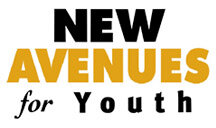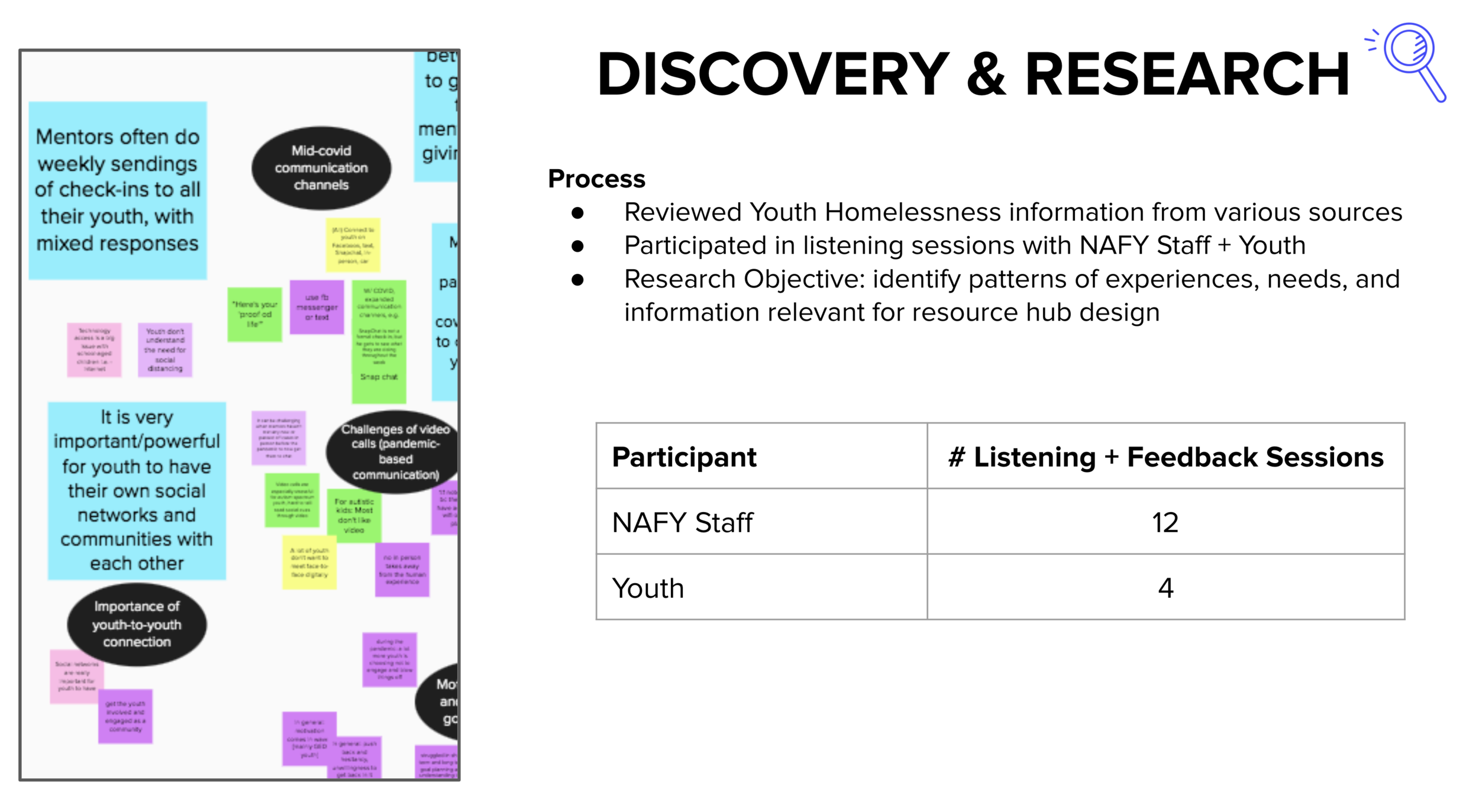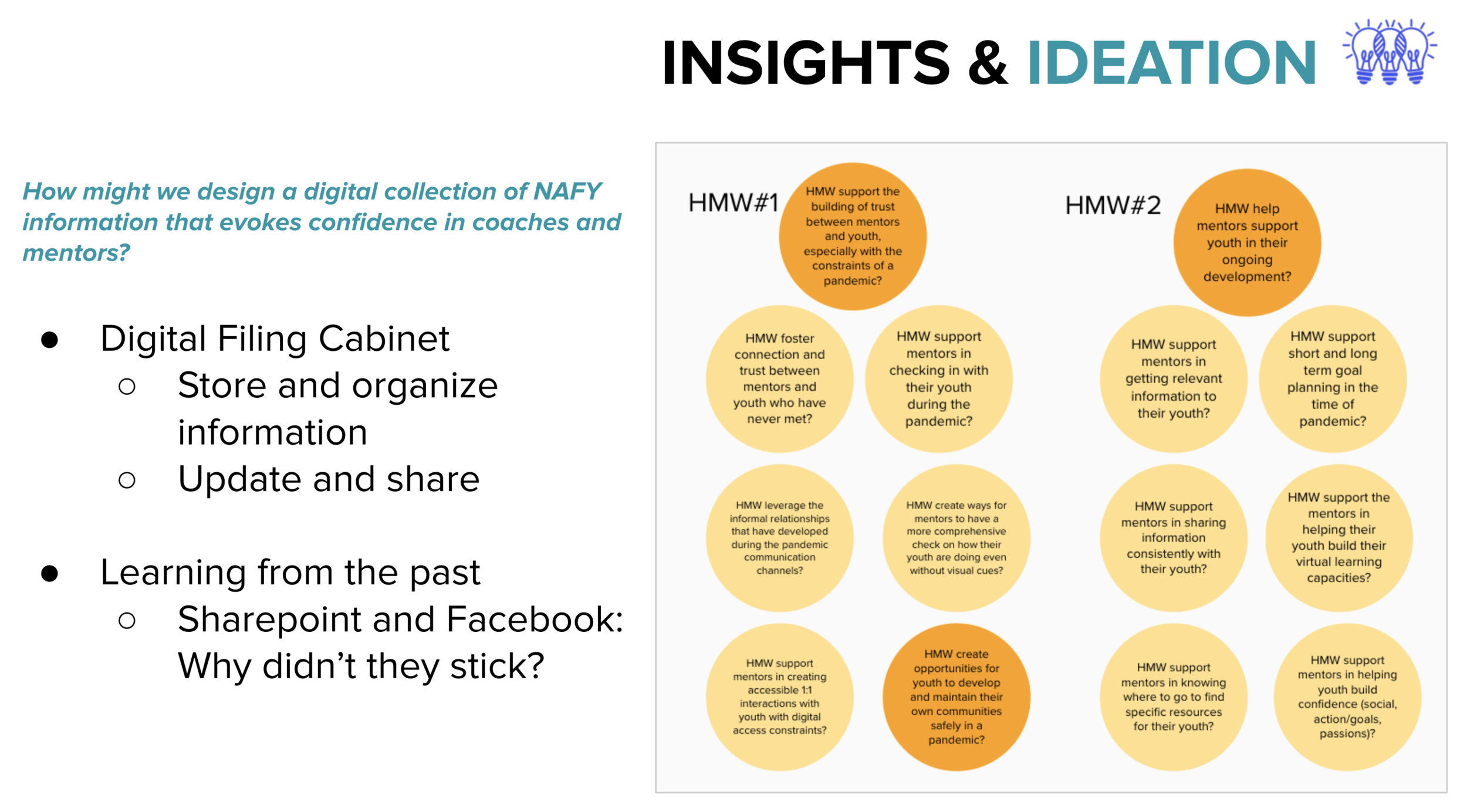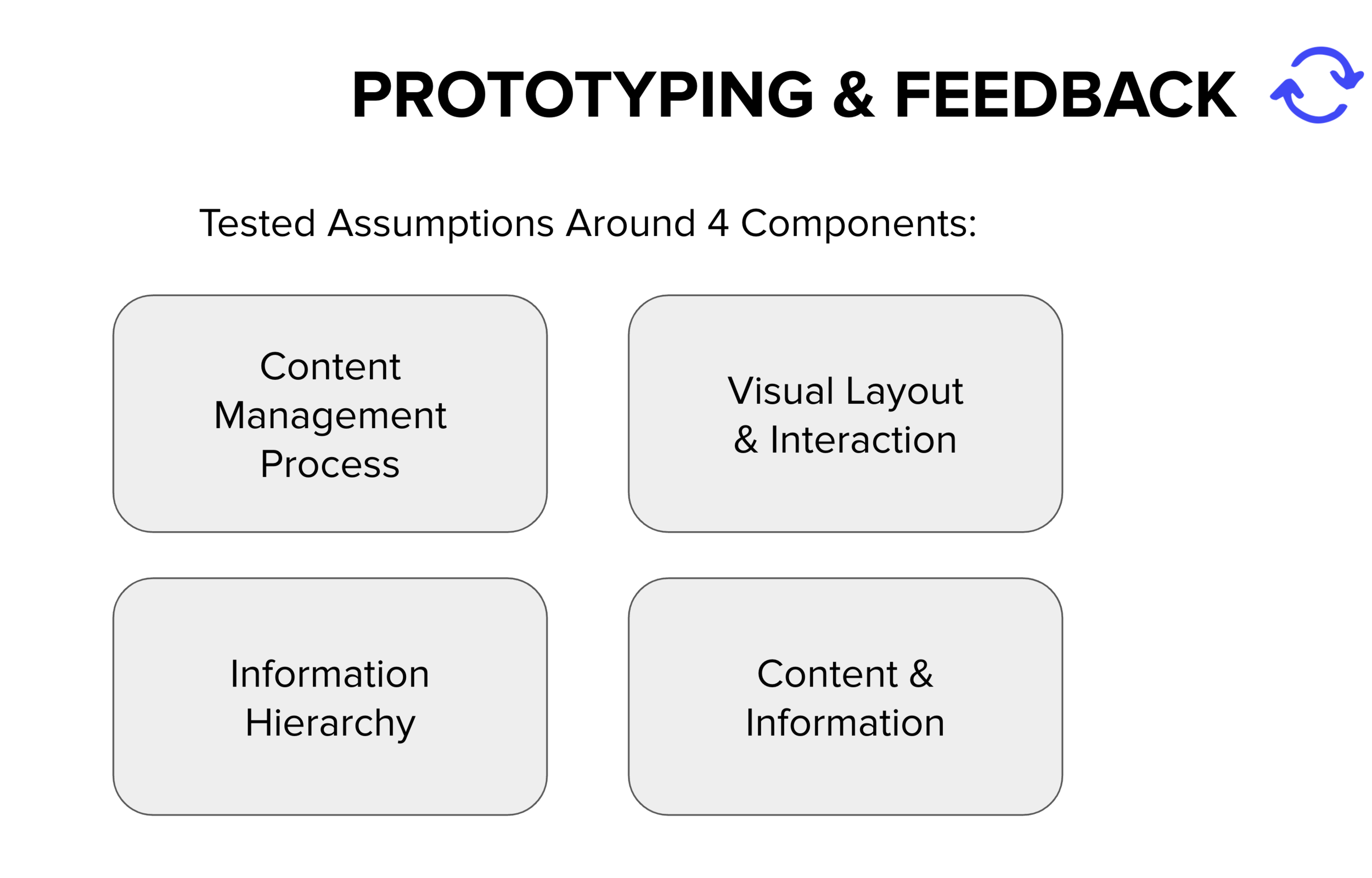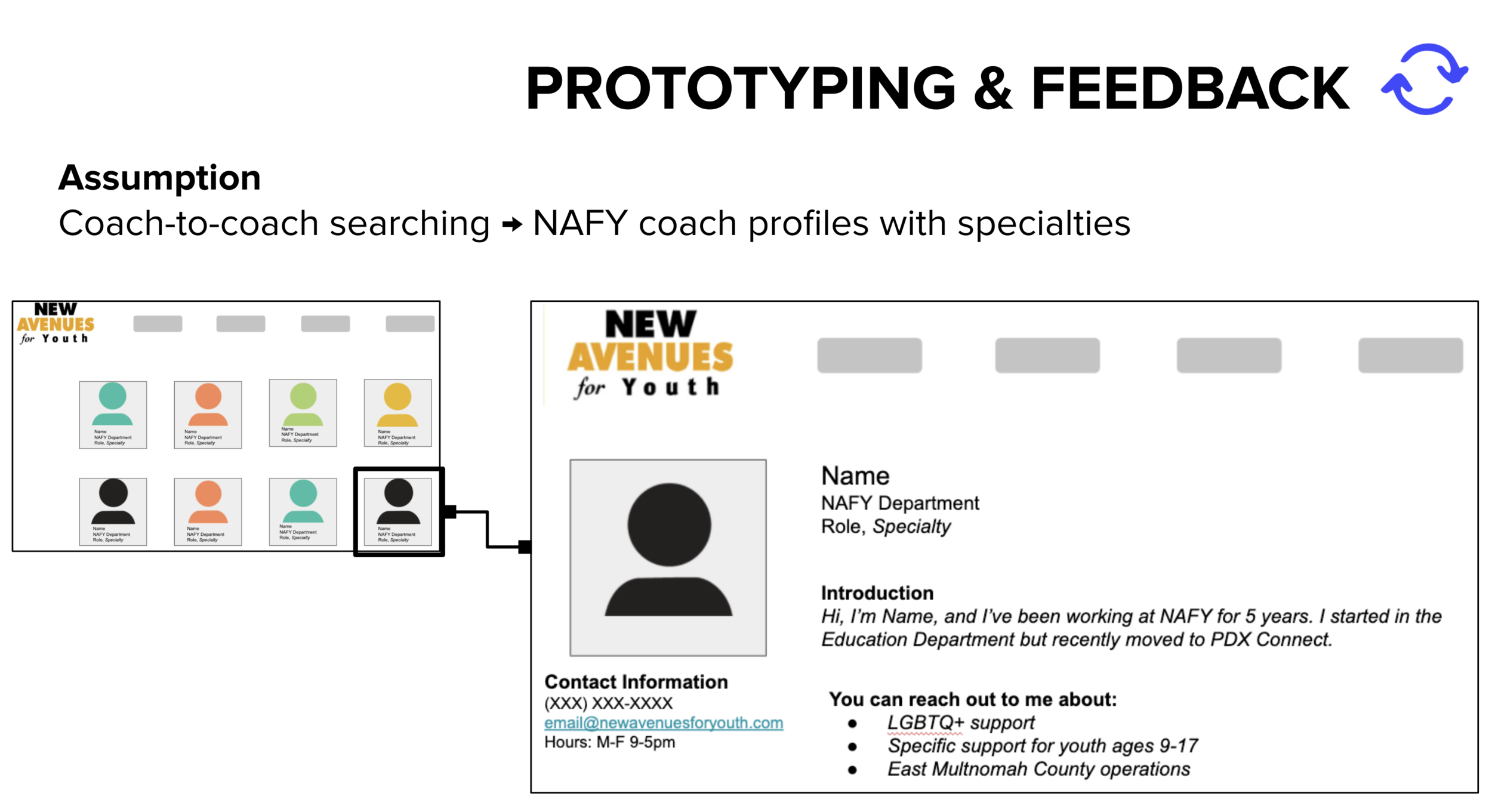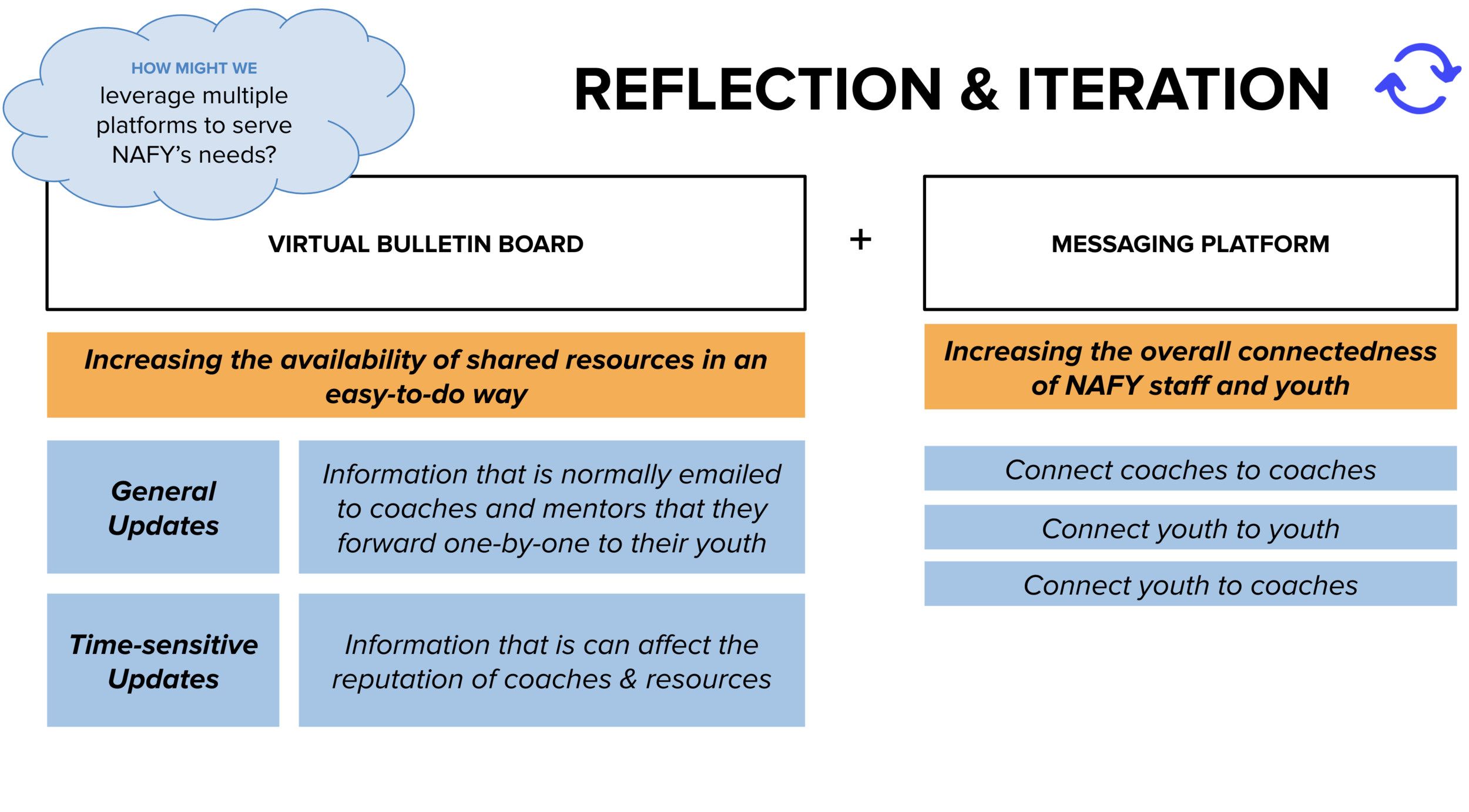Resource Hub to Support Mentors and Houseless Youth
What I Did
Through the Social Impact Lab, I led a multidisciplinary team to design a prototype of a Resource Hub to support Portland’s New Avenues for Youth (NAFY) and their mission to prevent youth houselessness and provide resources and skills for youth to lead healthy, productive lives. Due to the particularly challenging impacts of COVID-19 during this time, I guided our fully remote team through the lab’s design process to understand the pressing and unique situations that NAFY’s youth were facing due to housenessless and the compounding effects of the pandemic.
Role: Team Lead + Design Researcher
Teammates
SJ Bowden [OR]
Kat Girardot [FL]
Gina Mendolia [CA]
Stakeholders
Toolkit
Interviews
Desk research
Active listening
Card-sorting
MURAL digital workspace
Affinity mapping
Qualitative analysis
Brainstorming
Wireframes
The Process
Clarify the Goal
Our team’s goal was to build upon previous work that identified the need for a resource hub to support one of NAFY’s mentor programs with their youth during the 2 month design marathon. However, with the drastic context changes due to the pandemic, we knew we wanted to reevaluate what a resource hub would mean in current and subsequent times.
Understand the Situation
We conducted listening sessions with several different NAFY staff that spanned different functions and locations to understand how interactions with their youth had changed with the pandemic and the types of resources that would be useful to both them and their youth.
Bridge the Gap
Based on the initial listening sessions, I led our team through synthesizing that information into key insights and ideating on possible prototypes we could test. We developed several digital prototypes using Figma and Google Slides to test key components of a digital resource hub during a live full-day feedback session with NAFY staff and youth. We made rapid iterations on the prototypes between the morning and afternoon sessions to update our understanding, which led to the evolution of a resource hub to a digital filing cabinet to a digital sharing space. In the end, we identified the different types of communication that could be fostered through different platforms, including the sharing of resources and creating open channels for connection between coaches and youth.
How I Did It
Click through the gallery to read more about each step of my process.



